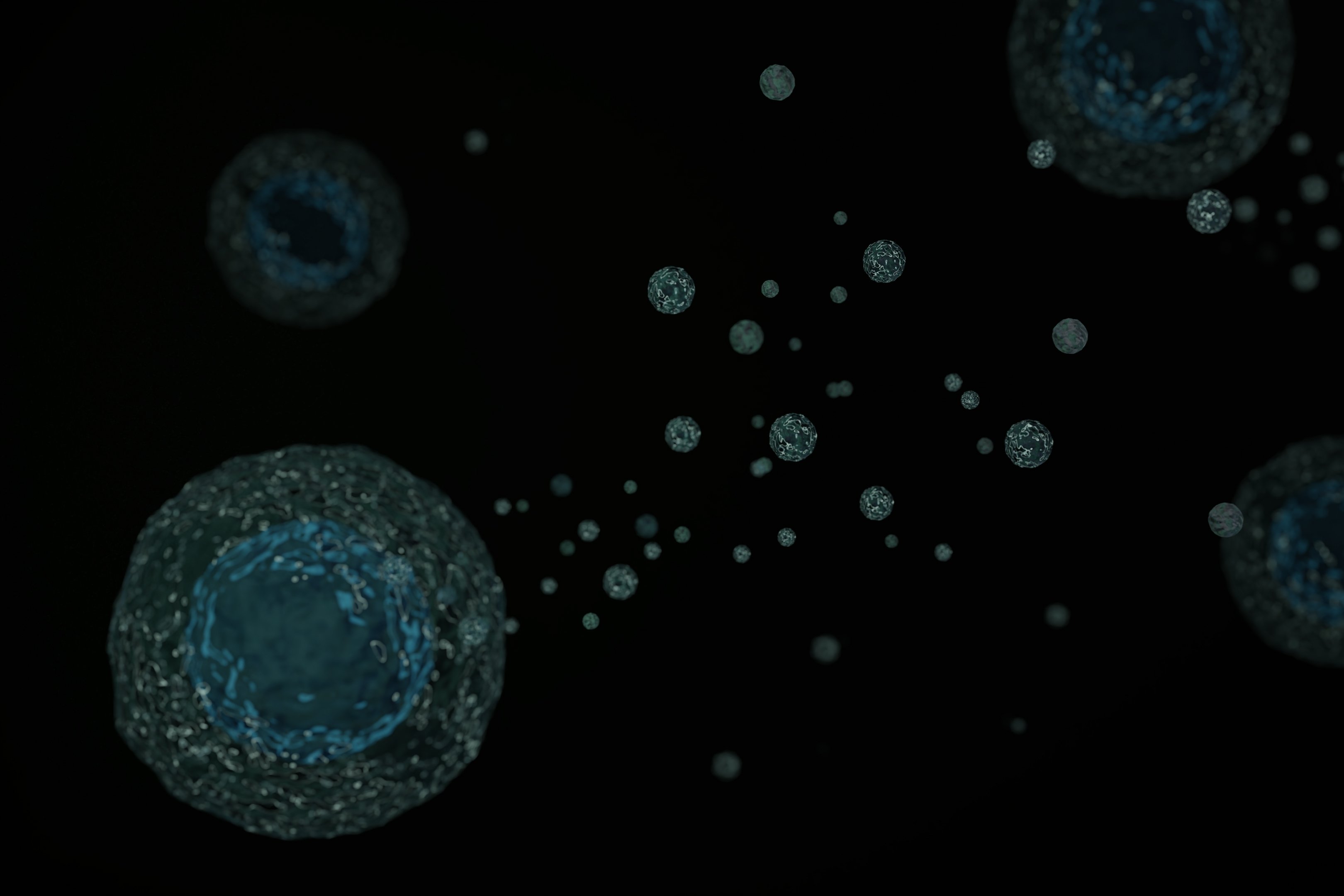
(Vienna, 28-10-2024) An international study led by MedUni Vienna has investigated the potential benefits of extracellular vesicles (EVs) from the probiotic bacterium Escherichia coli A0 34/86 (EcO83) in therapeutic applications. The researchers show that EVs could be a promising alternative to live probiotic bacteria, especially in terms of safety and efficacy. The study results were recently published in the "Journal of Extracellular Vesicles".
Probiotic bacteria are live microorganisms that, when administered in sufficient quantities, can provide health benefits. They play an important role in maintaining the health of the gastrointestinal tract and can support the immune system. Probiotics are often used to prevent infections and diarrhoea, especially in newborns. Despite their positive effects, however, there are concerns regarding the use of live probiotics, especially in immunocompromised patients. This is where the so-called postbiotic therapies come into play, which are based on the use of non-living microbes that have immunomodulatory effects and offer similar health benefits to live probiotics. These therapies utilise the bioactive components produced by bacteria, including proteins, lipids and nucleic acids, to modulate the host's immune response without the risks of live microbes.
The extracellular vesicles of EcO83 investigated in this study by a team led by Agnieszka Razim and Irma Schabussova (Centre for Pathophysiology, Infectiology and Immunology, Institute for Specific Prophylaxis and Tropical Medicine, MedUni Vienna) could represent a new class of postbiotic therapeutics due to their ability to trigger immune responses. The EVs were isolated and characterised according to the Minimal Information for Studies of Extracellular Vesicles (MISEV) guidelines. These guidelines ensure transparency and reproducibility in research on EVs and define what information should be provided in studies. Extracellular vehicles are membrane-encapsulated structures of cells that can contain biologically active molecules such as proteins, lipids and nucleic acids. They are able to interact with other cells and influence their function.
In vitro and in vivo experiments showed that the EVs of EcO83 interact with human nasal epithelial cells and trigger an immune response in the nasal mucosa and recruitment of inflammatory cells to the lungs. The mechanisms of these interactions include the activation of a specific signalling pathway that plays a key role in the regulation of inflammatory responses and the production of nitric oxide (NO), a molecule that has important functions in the immune system.
"The results of our study could drive the development of innovative therapies that focus on the treatment and prevention of allergic reactions and other inflammatory diseases," emphasises study leader Irma Schabussova. The use of EVs as postbiotic therapeutics could increase the safety and efficacy of treatments by minimising the risks of live probiotics while maintaining their immunomodulatory properties. Further research is needed to evaluate the full therapeutic potential of EcO83-EVs.
Publication: Journal of Extracellular Vesicles
Bacterial extracellular vesicles as intranasal postbiotics: Detailed characterization and interaction with airway cells.
Agnieszka Razim, Agnieszka Zabłocka, Anna Schmid, Michael Thaler, Viktor Černý, Tamara Weinmayer, Bradley Whitehead, Anke Martens, Magdalena Skalska, Mattia Morandi, Katy Schmidt, Magdalena E. Wysmołek, Akos Végvári, Dagmar Srutkova, Martin Schwarzer, Lukas Neuninger, Peter Nejsum, Jiri Hrdý, Johan Palmfeldt, Marco Brucale, Francesco Valle, Sabina Górska, Lukas Wisgrill, Aleksandra Inic-Kanada, Ursula Wiedermann, Irma Schabussova.
https://doi.org/10.1002/jev2.70004